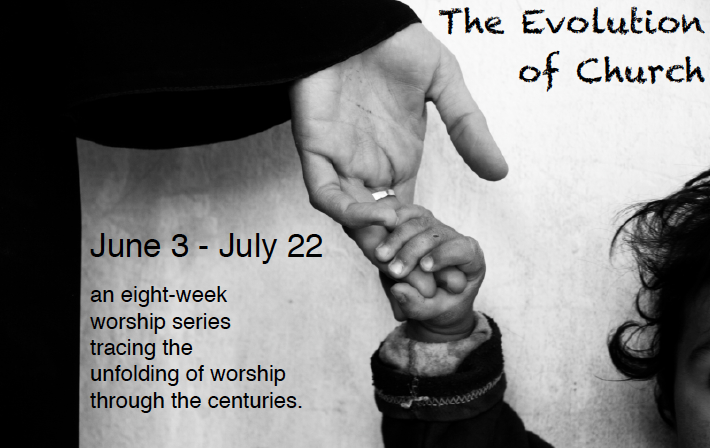We transition this week from the monastic communities of the early church to the reformation of the sixteenth century. Martin Luther was himself a German monk, thus the way of life we explored yesterday in worship would have been formative to Luther. Luther lived in a time of dramatic change within the church and the world. With the invention of the printing press, people began reading the Bible in their own languages. Churches steeped in elaborate rituals & art come under scrutiny. Many discern it is time for different ways of worship. Words and reason become increasingly important.
The church historian Roland Bainton writes,
Luther took no steps to spread his theses among the people. He was merely inviting scholars to dispute and dignitaries to define, but others surreptitiously translated the theses into German and gave them to the press. In short order they become the talk of Germany. What Karl Barth said of his own unexpected emergence as a reformer could be said equally of Luther, that he was like a man climbing in the darkness a winding staircase in the steeple of an ancient cathedral. In the blackness he reached out to steady himself and his hand laid hold of a rope. He was startled to hear the clanging of a bell.
The availability of printed materials in languages the masses could read changed the shape of church and the world. Read and consider the following translations of Romans 3.22b-24:
Greek: οὐ γάρ ἐστιν διαστολή, 23πάντες γὰρ ἥμαρτον καὶ ὑστεροῦνται τῆς δόξης τοῦ θεοῦ 24δικαιούμενοι δωρεὰν τῇ αὐτοῦ χάριτι διὰ τῆς ἀπολυτρώσεως τῆς ἐν Χριστῷ Ἰησοῦ·
Latin: non enim est distinctio 23 omnes enim peccaverunt et egent gloriam Dei 24 iustificati gratis per gratiam ipsius per redemptionem quae est in Christo Iesu
King James: for there is no difference: 23 For all have sinned, and come short of the glory of God; 24 Being justified freely by his grace through the redemption that is in Christ Jesus:
New Revised Standard Version: For there is no distinction, 23since all have sinned and fall short of the glory of God; 24they are now justified by his grace as a gift, through the redemption that is in Christ Jesus,
The Message (a contemporary language rendering by Eugene Peterson): For there is no difference between us and them in this. Since we’ve compiled this long and sorry record as sinners (both us and them) and proved that we are utterly incapable of living the glorious lives God wills for us, God did it for us. Out of sheer generosity he put us in right standing with himself. A pure gift. He got us out of the mess we’re in and restored us to where he always wanted us to be. And he did it by means of Jesus Christ.
After you read each version in order, invite reflection on the experience. When were you most confused or unsure of the text’s meaning? When did you begin to feel more confident in what the text was saying? Perhaps the simple availability of sacred texts in our own language is an expression of Grace, making possible the clanging of bells in our hearts and our minds. How might your faith be different if sacred texts were not available in your own language?


0 Comments